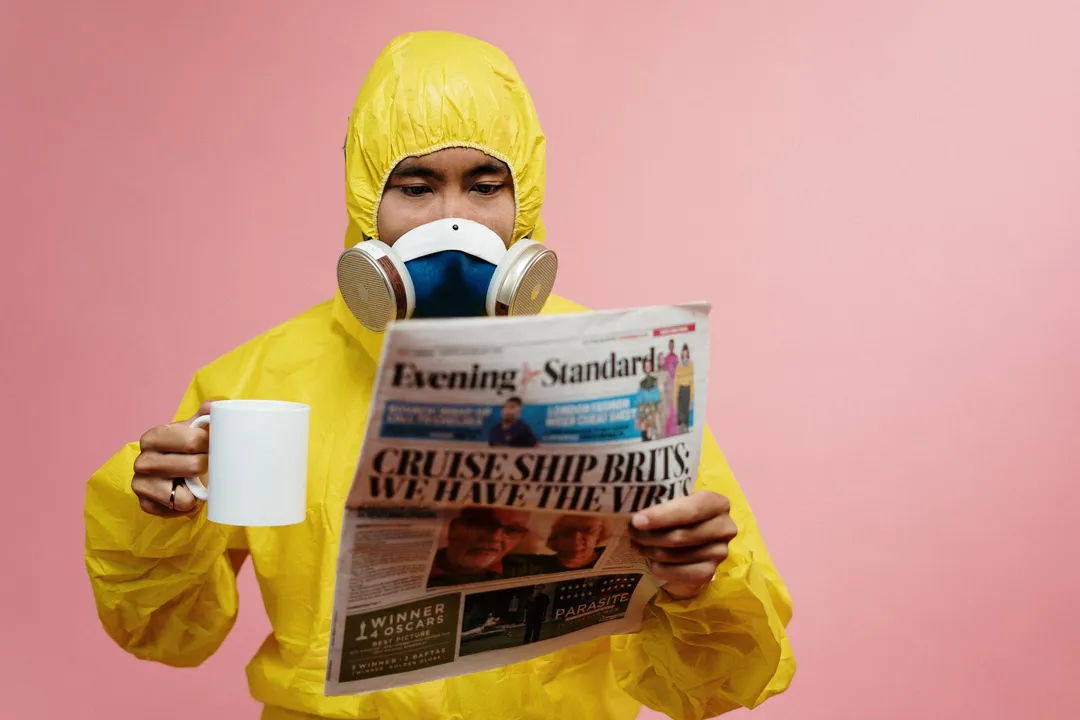Don’t Take COVID-19 Home With You: Keeping Safe at Work

pexels.com/cottonbro
As COVID-19 continues to spread in the US and around the world, frontline healthcare workers face the constant risk of being exposed to the virus. Even worse for many is the idea that they may take COVID-19 home to their families or to their friends. As lockdown measures begin to be lifted, the risk of spreading COIVD-19 from work to more people has become an even greater risk.
COVID-19 spreads in droplets that can travel up to six feet but may linger in the air or travel further in poorly ventilated areas, according to recent CDC guidelines. This is why social distancing measures have been put in place and why face mask use has become more prevalent. In the healthcare environment, where close contact with other people is necessary, medical-grade face masks are used, and in some circumstances, advanced masks like N95’s are used to ensure that potential airborne viral transmission does not occur.
Avoiding Bringing COVID-19 Home
There are several actions that you can take to keep your family and loved ones safe from you potentially bringing COVID-19 home from work. While nothing is ever 100%, taking these measures will reduce your risk of bringing COVID-19 home.
Follow CDC and Local Recommendations and Guidelines
This may seem obvious to many, but the guidelines that the CDC makes are formulated by our nation's top experts. Your local health department’s guidelines are often made in collaboration with national experts and are more tailored to your local situation. These guidelines are in place for a reason and are based on the most recent data and the analysis of experts. By following these guidelines at work, you will reduce your chances of getting, and thus transmitting, COVID-19.
Avoid COVID-19 Positive Individuals When Possible
As healthcare professionals, this certainly may not always be possible. The simple fact is, however, that the more time you spend around someone who has COVID-19, the more likely you are to catch it. Even if you are wearing personal protective equipment (PPE) correctly, the chance that you will make a mistake during donning or doffing becomes more likely the more times that you are using it. Avoiding those with COVID-19 will help you to avoid catching it and transmitting it to others.
Always Use PPE
Wearing a mask with every patient interaction, even if they probably don’t have COVID-19, is probably best. Using PPE with every patient who has any kind of potential COVID-19 symptoms will help you stay as safe as possible. Take care that you use PPE correctly and do not become contaminated while donning, doffing, or using PPE.
With national PPE shortages being common, you may not always have the correct PPE available. If this is your situation, try to make any PPE you have last as long as it can, reusing it if necessary. Ultimately, if you are experiencing a PPE shortage, your employer should have a backup plan that you can follow to keep yourself as safe as possible.
Wash Your Hands
Most healthcare professionals were tired of the emphasis on the importance of hand washing before they had finished their first week of school. It is ingrained into everything people do in the health profession, but for a good reason. Hand washing is one of the biggest ways that the spread of infection can be stopped. This was true before the pandemic and is certainly still true during it. Washing your hands before and after each patient interaction and before touching your face is an important component of keeping yourself and those at home safe.
Don’t Wear Your Work Clothes Home
Your work clothes aren’t always protected from surfaces or droplets that could transmit COVID-19. If you have been in a clinical setting at all, much less for a full shift, then you should consider that your clothes may be contaminated. Some people change into other clothes at work, others might change in the garage when they get home. The key is to change your clothes before arriving home or immediately when you do. Don’t forget to keep your clinical shoes off your floors, especially if you have young children. Clinical clothes should go into the wash first thing and shouldn’t be permitted around the house at all.
Shower After Each Shift
Just as your clothes may be contaminated with COVID-19, so can your skin or your hair. Showering first thing when you get home will help to avoid contaminating those in your home. This may necessitate not hugging your spouse or partner or your children until you have washed, but this may be necessary for their optimal safety.
Keep Healthy
Keeping yourself refreshed, avoiding poor food choices, and taking other measures to maintain good health can help your immune system and reduce the viral load you may have if you do catch COVID-19, potentially limiting how contagious you may be. By staying healthy, your body will be better prepared to fight COVID-19 if you do catch it and could help reduce the risk to others.
Ultimately, safety can never be guaranteed. By taking extra precautions at work and at home you can, however, reduce the potential risk of taking COVID-19 home to those you love.
Related Posts
